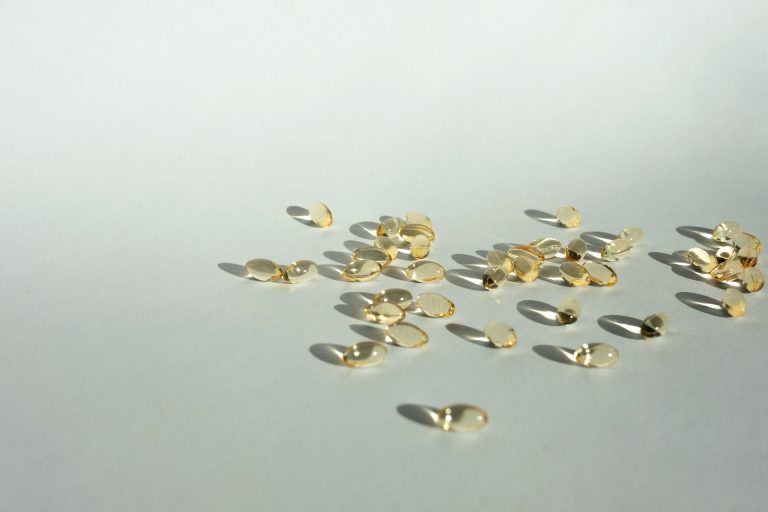Ah! Vitamin D, well known for strengthening bones. The oldest among us will remember having done cod liver cures in childhood… It was for its vitamin D intake and to support growth! But it does much more than that in the body, we really need it elsewhere. And the height is that we miss almost all of them! So follow the guide to understand everything about vitamin D and its impact on health.

Vitamin D, the ubiquitous hormone
You are spared the advanced biology course; however, understanding how vitamin D works in the body helps to realize its significance. We synthesize it to 80-90% through the skin, through UVB rays from the sun; the rest comes from food. Rather than a vitamin, they are actually two fat-soluble hormone precursors:
- vitamin D2 or ergocalciferol (vegetable form)
- vitamin D3 or cholecalciferol (animal form)
These two precursors are then transformed into calcitriol, which is the active form of vitamin D. We promise, we will stop there with the learned words.
Then, once synthesized, the vitamin travels throughout the body to act everywhere, as we will see. To ensure its transport, it needs vitamin B and magnesium. Vitamin A also works synergistically with it in some cases. In short, it is to say that vitamin D is good, but with other vitamins!
On this subject, Dr. Mouysset came to our offices a few months ago. We had spoken with him about the importance of vitamin D, but also recommendations for a multivitamin cure.
Discover the Resource Center of Dr Mouysset, partner of Medisur.
The health benefits of vitamin D
Sufficient levels of vitamin D in the blood increase the intestinal absorption of phosphorus and calcium. Vitamin D acting at the level of cell growth, it is a real ally in the development of the child. This is why infants take it as a supplement, in order to solidify their bones and to avoid rickets.
Vitamin D has other virtues, such as strengthening the cardiovascular system thanks to its joint action with vitamin K. In addition, it has the power to regulate the immune system, it is anti-inflammatory and anti-allergic, among others . A true health ally!
Many recent studies show a positive link between vitamin D and Covid-19, with large differences between people who are deficient and those who are not. Similarly, it is reported that vaccination is better tolerated and works better if the body is properly supplied with vitamins A and D.
Find Dr. Mouysset's recommendations on this subject.
In any case, it is certain that vitamin D offers protection against viral or infectious diseases. And even more, because vitamin D deficiencies are known to promote depression. Indeed, it also has the role of stimulating brain hormones.
Why is everyone deficient
Our way of life has become sedentary, most of us work locked in an office. We are less exposed to the sun these days. In any case, we wear sunscreen to protect ourselves from sunburn and skin cancer. Also, air pollution makes the sun less effective.
It is difficult to guess if one is deficient, because there are no specific clinical signs.
Symptoms that may alert you:
- general tiredness
- muscle weakness
- Cramps
- dry skin
It is then necessary to make regular dosages of the level in the blood. If we all test ourselves now, it's a safe bet that 80 to 100% of us are deficient. Studies have shown this, on more controlled samples. Namely that there are several degrees of deficiency, as follows:
- less than 30 ng/mL of blood: insufficient
- less than 10 ng/mL of blood: deficiency
Number to remember:
A normal blood concentration of vitamin D is between 30 and 70 ng/mL.

How to manage your vitamin D intake?
We can obtain this contribution by exposing ourselves to the sun or more precisely to UVB rays. In order to avoid overexposure and the risk of skin cancer, it will be advisable to expose oneself according to these advices:
- between 5 and 10 minutes a day for fair skin, before 11 a.m. or after 5 p.m. in spring and summer;
- 30 minutes two to three times a week if the sky is overcast or for dark to black skin, in spring and summer;
- in winter, you should expose your skin for 2 hours every day.
In order to complete this exposure to the sun, which is not necessarily possible depending on our work and our way of life, it is then necessary to look for vitamin D in foods and food supplements.
As we saw at the beginning of this article, vitamin D comes in two forms in the body: vitamin D2 and vitamin D3. The sun allows us to synthesize vitamin D3, also known as vitamin D in animal form. Even if they benefit from the same metabolism to activate, we recognize that they act in complementarity. D3 takes care of strengthening bones and muscles, while vitamin D2 preserves the cardiovascular part.
It is therefore interesting to vary the intake, whether in food supplements or directly in food. Cod liver or eggs are very well known for providing vitamin D3 to the body. But we repeat, the contribution by food is very minor on the rest: only 10 to 20%. It will then be appropriate to take vitamin D in food supplements, in cures of 400 IU/d to 1000 IU/d. To be seen with your doctor according to your initial dosage.
